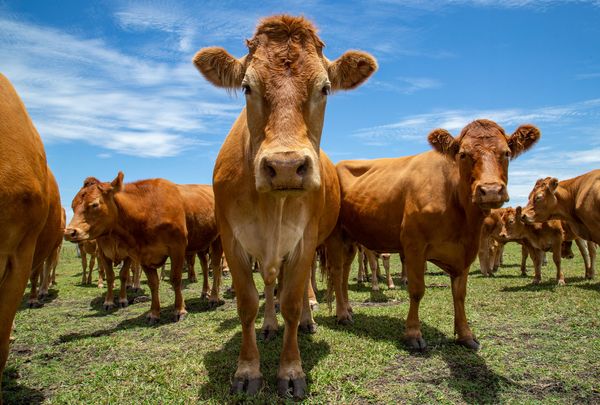
At the heart of the political debate about the Voice to Parliament is an odd contradiction. The prime minister insists that a Voice to Parliament is crucial to improving the effectiveness of policies aimed at Closing the Gap, but he has effectively said that if the Voice referendum is defeated, he will not legislate to establish a Voice.
Peter Dutton, however, says a Voice to Parliament is a sinister elite plot to overthrow the constitution or the government or something — it’s not really clear what — and appeals to the sense of grievance and victimhood of non-Indigenous Australians to defeat it. But if the Voice is defeated, Dutton wants to legislate one. “Let’s do that. Let’s sit down and work together on the drafting of that,” Dutton says.
For someone who regards a Voice to Parliament as a conspiracy to “re-racialise” Australia, Dutton is awfully keen to create one. Just not via a referendum. And for someone who thinks a Voice is crucial to Closing the Gap, Anthony Albanese is peculiarly resistant to establishing it by some other means if his proposed one fails.
Of the two, however, there is far more coherence to Albanese’s position. The prime minister offers two justifications for not legislating if the No campaign is successful. Firstly, that a constitutionally enshrined Voice is what Indigenous peoples have sought — “Indigenous Australians have asked for it to be in the constitution,” he told the ABC yesterday. “They want a form of constitutional recognition that has substance, not just style, that can’t be just dismissed on a stroke of a pen.”
Secondly, he says, “if the referendum fails, it will be a clear sign that it doesn’t have the support of the Australian people … the verdict of the Australian people in a referendum is something that has to be taken into account, of whether they support it or not.”
Albanese’s logic sits poorly with the standard view of the referendum among much of the media, that it is a continuation of politics-as-usual, that the issue is who is winning and who is losing, that the respective campaigns are to be assessed for their savvy and effectiveness, or their lack of impact, that it’s a race to be tracked via polling like any other standard political issue. In this view, the Voice is an issue to be decided by the manipulation of the electorate by the respective sides, with the honours going to the side that can influence and engineer the thinking of voters best, but politics will continue as normal no matter what the result.
But that is not the case. A referendum is an expression of democratic opinion unlike anything else, beyond opinion polls, beyond even a general election, a national response to a specific question.
Such a vote has significant consequences. If the electorate doesn’t want an Indigenous Voice to Parliament, a politician defying that expressed will and proceeding to legislate one is acting anti-democratically, even if there is a strong policy rationale for a Voice. What is the point of a political leader committing to a referendum but then circumventing its result when it’s not what they want? That seems to be what Dutton proposes — to ignore the will of Australians and proceed anyway to legislate something he has just convinced voters is evil.
That logic applies as strongly for Indigenous peoples in Australia. A Voice enshrined in the constitution is what First Nations peoples have asked for, as part of a process initiated by the Coalition government in 2015. Any lesser or alternative form of recognition — say, a vague acknowledgement in the constitution and a legislated Voice — is not recognition of any kind, merely symbolism. As Albanese says, it’s a continuation of business-as-usual in Indigenous policymaking, which has failed spectacularly.
Yes campaign leader and Uluru Dialogue co-chair Aunty Pat Anderson argued today that a legislated Voice is also an insult to First Nations peoples and the process by which they expressed their support for a Voice enshrined in the constitution. “A Voice that is legislated only, outside the constitution, does not work for us,” Anderson said. “It makes us subject to the whims and fancy of the politics of the day … Our organisations do not know whether they are funded from one government to the next and when there is a change of government we are back to ground zero.”
A legislated Voice is also a cop-out, a fig leaf to avoid acknowledging a hard reality. If non-Indigenous Australians don’t want a Voice to Parliament, they can be judged by the rest of the world, and by First Nations peoples, accordingly. Symbols and legislated Voices are an attempt to disguise what a No vote would mean — that non-Indigenous Australians aren’t interested in a genuine effort to Close the Gap.
Votes have consequences. There should be no papering over them by political opportunists.






